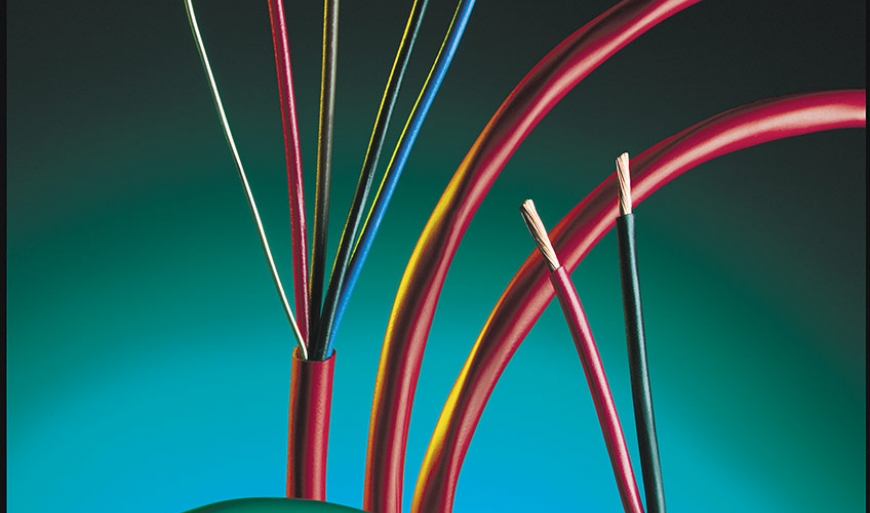Manufacturer Grows Market Share with Lead-Free Products
Kalas expands offerings by reducing heavy metal in wire, cable

The Challenge
The European Union’s adoption of the Restriction of Hazardous Substances (RoHS) was a watershed moment for Kalas Manufacturing. The directive meant that the Denver, Pa.-manufacturer needed to switch to lead-free vinyl compounds or lose out on a major market for its wire and cable products.
Kalas’ first course of action was to find substitutes for jacketing and heavy-metal-free (HMF) color concentrates that would deliver the same performance properties as its existing materials while meeting Underwriters’ Laboratories standards. The company also wanted to find a lead-free vinyl that would process as well as lead-stabilized material to avoid a negative impact on manufacturing efficiency and cycle time.
Beyond those goals, Kalas wanted to use the opportunity to make a major leap forward in its sustainability efforts by reducing its overall lead exposure at two key facilities.
The Solution
As a first step, Kalas partnered with the U.S. Environmental Protection Agency. As part of that effort, it entered the National Partnership for Environmental Priorities program, which encourages organizations to form voluntary partnerships with the EPA to reduce the use and release of 31 priority chemicals, including lead.
The company set ambitious goals. It planned to reduce the amount of lead processed at its Plant No. 2 by 20 percent – or 20,000 pounds – through substituting reduced-lead or lead-free compounds and color concentrates. It also planned to reduce lead processing at its Plant No. 3 by 25 percent – or 10,500 pounds – through solderless product offerings.
With these key goals set, Kalas reached out to Avient, which had been supplying lead-stabilized vinyl compounds for wire and cable jacketing for a number of years.
Teams from both companies worked together on the needed conversion, eventually developing new Geon™ vinyl compounds using stabilizers without lead that delivered equivalent processing and performance parameters. They also switched from color concentrates containing heavy metal to RoHS-compliant OnColor™ color concentrates.
In addition to developing the right materials, the teams worked closely to transition all aspects of manufacturing using the new materials. Just as important, they joined forces to secure UL approvals for the updated products.
The Impact
The switch to new materials allowed Kalas to not only stay in the European market, but to expand its presence and enhance its sustainability profile.
- Enhanced “green” reputation: Kalas ultimately removed 100,000 pounds of lead from its operations, due in large part to reformulated vinyl compounds and color concentrates. The manufacturer received recognition from NPEP for voluntarily lowering the amount of lead in its operations.
- Unrestricted sales opportunities: The lead-free materials enabled Kalas to continue marketing its wire and cable products in Europe without interruption, thanks to compliance with the RoHS directive.
- Competitive advantage in existing and new markets: Kalas was able to complete its conversion to lead-free wire and cable materials ahead of its competitors. As a result of this head start, the company expanded its European sales and opened new market opportunities in North America, making an important contribution to growth and revenue targets.
- Improved safety and easier handling: Kalas was able to reduce health and safety risks to its workers from lead exposure, while also eliminating the costs of handling, monitoring and reporting these regulated materials.
“We have achieved key objectives including growing revenues, expanding into new markets, and gaining a competitive advantage,” said Lyn Hassler, senior buyer at Kalas. “Most important, we have made a contribution to a cleaner, safer planet through the reduction of huge amounts of lead and other hazardous substances, an achievement that all of us at Kalas can feel good about.”